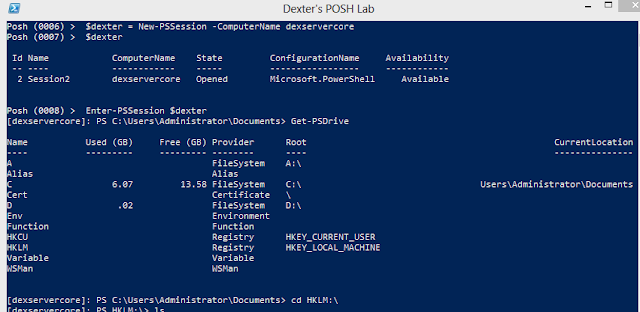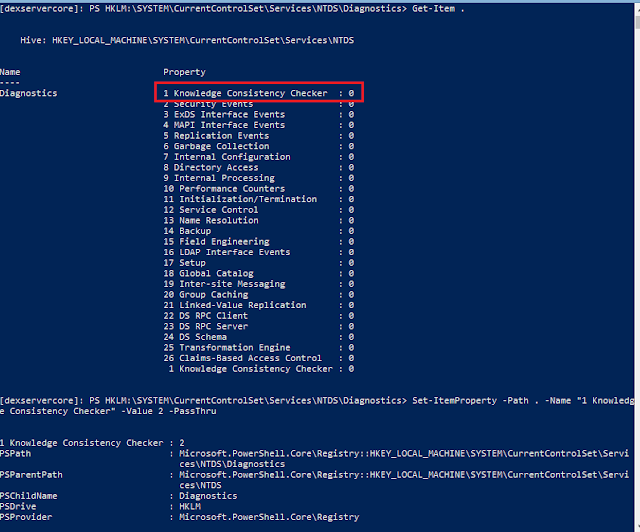In a Windows Environment running Active Directory, Knowledge Consistency Checker (KCC) is responsible for creating connection objects and builds replication topology which is at the heart of Multi-Master Replication.
To audit if the KCC is up and running or actually the replication changes are occurring, We can enable auditing by changing a Registry Entry. But as I have a ServerCore running a Domain Controller I will do this on it
First Create a New PowerShell Session and then enter it.
Most of you will be familiar with PSDrives which are nothing but an abstraction which helps you see various datastores like Registry as Drives.

Now the HKLM:\ is the Drive for HKEY_LOCAL_MACHINE registry hive.
HKLM:\SYSTEM\CurrentControlSet\Services\NTDS\Diagnostics is the Registry key where we need to change the "1 Knowledge Consistency Checker" property to any value between 0-5 where 0 is no auditing and 5 is the maximum auditing messages. I will select 2 just in case.
Go ahead and change the registry as shown below (or any other method like remote registry)

This will just enable auditing no reboot required. Unfortunately, I think I can't test it as I have only One DC running in my test environment. But good to know this.
To audit if the KCC is up and running or actually the replication changes are occurring, We can enable auditing by changing a Registry Entry. But as I have a ServerCore running a Domain Controller I will do this on it
First Create a New PowerShell Session and then enter it.
Most of you will be familiar with PSDrives which are nothing but an abstraction which helps you see various datastores like Registry as Drives.

Now the HKLM:\ is the Drive for HKEY_LOCAL_MACHINE registry hive.
HKLM:\SYSTEM\CurrentControlSet\Services\NTDS\Diagnostics is the Registry key where we need to change the "1 Knowledge Consistency Checker" property to any value between 0-5 where 0 is no auditing and 5 is the maximum auditing messages. I will select 2 just in case.
Go ahead and change the registry as shown below (or any other method like remote registry)

This will just enable auditing no reboot required. Unfortunately, I think I can't test it as I have only One DC running in my test environment. But good to know this.